
 The information contained in this book is provided for general purposes only. It is not intended as and should not be relied upon as medical advice. The publisher and authors are not responsible for any specific health needs that may require medical supervision. If you have underlying health problems, or have any doubts about the advice contained in this book, you should contact a qualified medical, dietary or other appropriate professional.
The information contained in this book is provided for general purposes only. It is not intended as and should not be relied upon as medical advice. The publisher and authors are not responsible for any specific health needs that may require medical supervision. If you have underlying health problems, or have any doubts about the advice contained in this book, you should contact a qualified medical, dietary or other appropriate professional.
Contents

Foreword by Michael Mosley
It was in 2012 that I discovered, thanks to a random blood test, that I was a Type 2 diabetic. Rather than start on medication, I researched the benefits of intermittent fasting and started on what I called The 5:2 Diet, cutting my calories for two days a week and eating normally for the other five.
I lost 9kg (nearly 20lb) and returned my blood sugars to normal. Since then there has been a revolution in our understanding of the benefits of rapid weight loss. In fact, NHS Choices, which once described the 5:2 as a fad diet, now says that, Sticking to a regimen for two days a week can be more achievable than seven days, so you may be more likely to persevere with this way of eating and successfully lose weight. Two days a week on a restricted diet can lead to greater reductions in body fat, insulin resistance and other chronic diseases. Based on the latest science, I recently wrote a new book, The Fast 800, which pulls together everything Ive learned about the easiest and most effective ways to lose weight and keep it off. In that book I made some changes to the original 5:2, upping the number of calories I recommend you eat on a fasting day to 800, which is enough to ensure you get all the nutrients you need without going hungry, and introducing a rapid weight loss option (where you eat 800 calories a day, every day) in order to kickstart your diet, and reap many other health benefits, too.
As in previous books, the recipes in The Fast 800 were created by my wife, Dr Clare Bailey. The Fast 800 rapidly became an international bestseller, bought and read by hundreds of thousands of people. There was immediate demand for a follow-up recipe book, which Clare, with the help of the acclaimed cook and food writer Justine Pattison, has duly delivered. Having tasted the recipes in this book, I can assure you they are both delicious and filling! So why should you follow the Fast 800 programme? One of the main benefits of doing this diet is that you lose fat fast which is very motivating. Contrary to what we are often told, losing weight fast doesnt mean you will put it back on again, even faster. A recent, hugely impressive study called DIRECT, carried out by Professors Mike Lean and Roy Taylor, showed that people with Type 2 diabetes who were randomly allocated an 800-calorie diet managed to lose and keep off far more weight than those who we were put on a slow and steady diet.
Those allocated the 800-calorie regime lost an average of 10kg, which they kept off for more than a year, compared to just 1kg in the control group. Almost half were able to put their diabetes into remission (they got their blood sugars back to normal, despite not being on medication), compared to 4% in the control group. Even more impressive was the follow-up study, which looked at what happened to those same patients two years later. Although there was some weight re-gain, the majority of those who had gone into remission were still in remission. And compared to the control group, they were far better off. Not only were they slimmer and with lower blood sugar levels, but they had lower cholesterol levels, lower blood pressure and were on far less medication.
There were also far fewer serious side effects, such as heart attacks or new cases of cancer. As Professor Lean said to me, For years we have been telling patients with Type 2 diabetes to take the pills and not worry too much. It is time to be honest and tell them that this is a serious disease with nasty complications, particularly if you develop it in your 40s or 50s. The good news is that with the right help many people can now get shot of it. I do hope you enjoy this book, a winning combination of art and science!
Introduction
Two of the great passions of my life have been food and medicine. Both my parents were doctors and my mother, who was a superb cook as well as a renowned child psychiatrist, taught me the joys of experimenting with food and combining flavours in different ways.
She was also a believer in the impact of good food on mental health. Following in her footsteps, I trained as a doctor at the Royal Free Hospital in London, where I met my husband, Michael Mosley, who has surprised me by going on to become a television presenter and health guru! What surprises me even more, at least in retrospect, is how little we learned during our years at medical school and my subsequent GP training, about the impact of diet or exercise on health. We were aware of the importance of lifestyle advice but most of the time we did what we were trained to do prescribe medication, and in increasing quantities. When I first qualified, in the 1980s, the standard advice, rarely questioned, was to tell patients to go on a low-fat diet. The fact that this steered them towards eating more carbs, usually in the form of sweet, starchy and often highly processed foods, didnt seem to matter. After all, everyone knew that the only real way to get fat was by eating fat.
As we now know, that advice was not just unhelpful, it was wrong. Eating fat does not necessarily make you fat; and sticking to a low-fat diet can mean you are missing out on healthy natural fats, which not only make food taste better and keep you feeling full for longer, but provide important nutrients and vitamins. When Michael discovered he had Type 2 diabetes it was a wake-up call. He managed to reverse his condition by losing a lot of weight fast on the 5:2 diet, and from then on, we both obsessively studied the evolving new science about the impact of food on health. Over the past seven years, new research has led to major developments in our understanding of the best ways to achieve weight loss, as well as life-changing advances in the prevention and reversal of diabetes. I have recently been involved myself with an Oxford University study, The Dietary Approaches to the Management of Type 2 Diabetes (DIAMOND), which put participants with Type 2 diabetes on a low-carb diet and an 8-week programme of 800cals a day, followed by 4 weeks of weight maintenance the results of which look very promising.
The message is now clear, Type 2 can be improved and even reversed by losing weight fast on a low-calorie or intermittent fasting diet. In The Fast 800 Michael has brought together all the latest scientific research to provide one highly flexible, easy-to-follow programme aimed not just at diabetics and prediabetics, but anyone who wants to lose weight and keep it off. And this companion recipe book is designed to help you put that programme into practice, whatever your needs or goals. You may have a lot of weight to lose, you may have a medical condition that is improved by weight loss, you may only need to shift a bit of weight and want the flexibility of intermittent fasting, or perhaps you simply want the long-term benefits of maintaining this way of life. I am delighted to have worked on this book with expert cook and food writer Justine Pattison. Together, we have created a collection of delicious recipes, which all follow the principles of a lowish-carb Mediterranean-style diet.
Next page
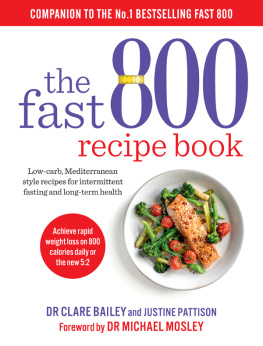

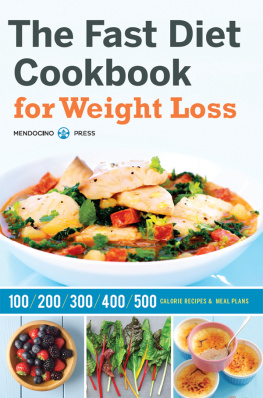
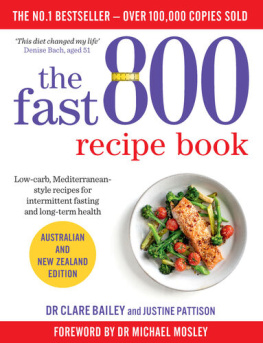
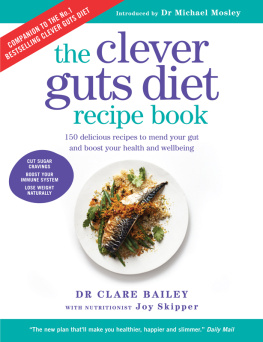

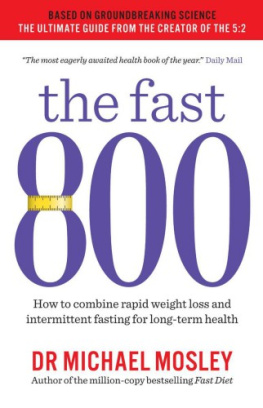
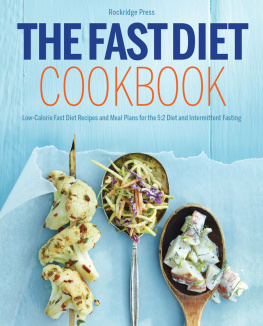
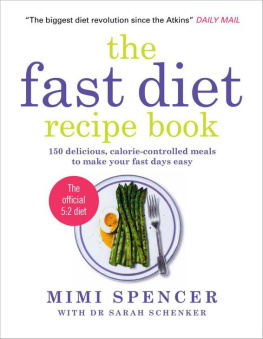
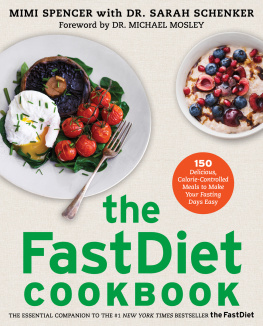

 The information contained in this book is provided for general purposes only. It is not intended as and should not be relied upon as medical advice. The publisher and authors are not responsible for any specific health needs that may require medical supervision. If you have underlying health problems, or have any doubts about the advice contained in this book, you should contact a qualified medical, dietary or other appropriate professional.
The information contained in this book is provided for general purposes only. It is not intended as and should not be relied upon as medical advice. The publisher and authors are not responsible for any specific health needs that may require medical supervision. If you have underlying health problems, or have any doubts about the advice contained in this book, you should contact a qualified medical, dietary or other appropriate professional.